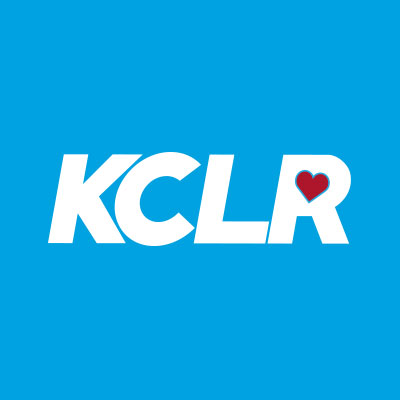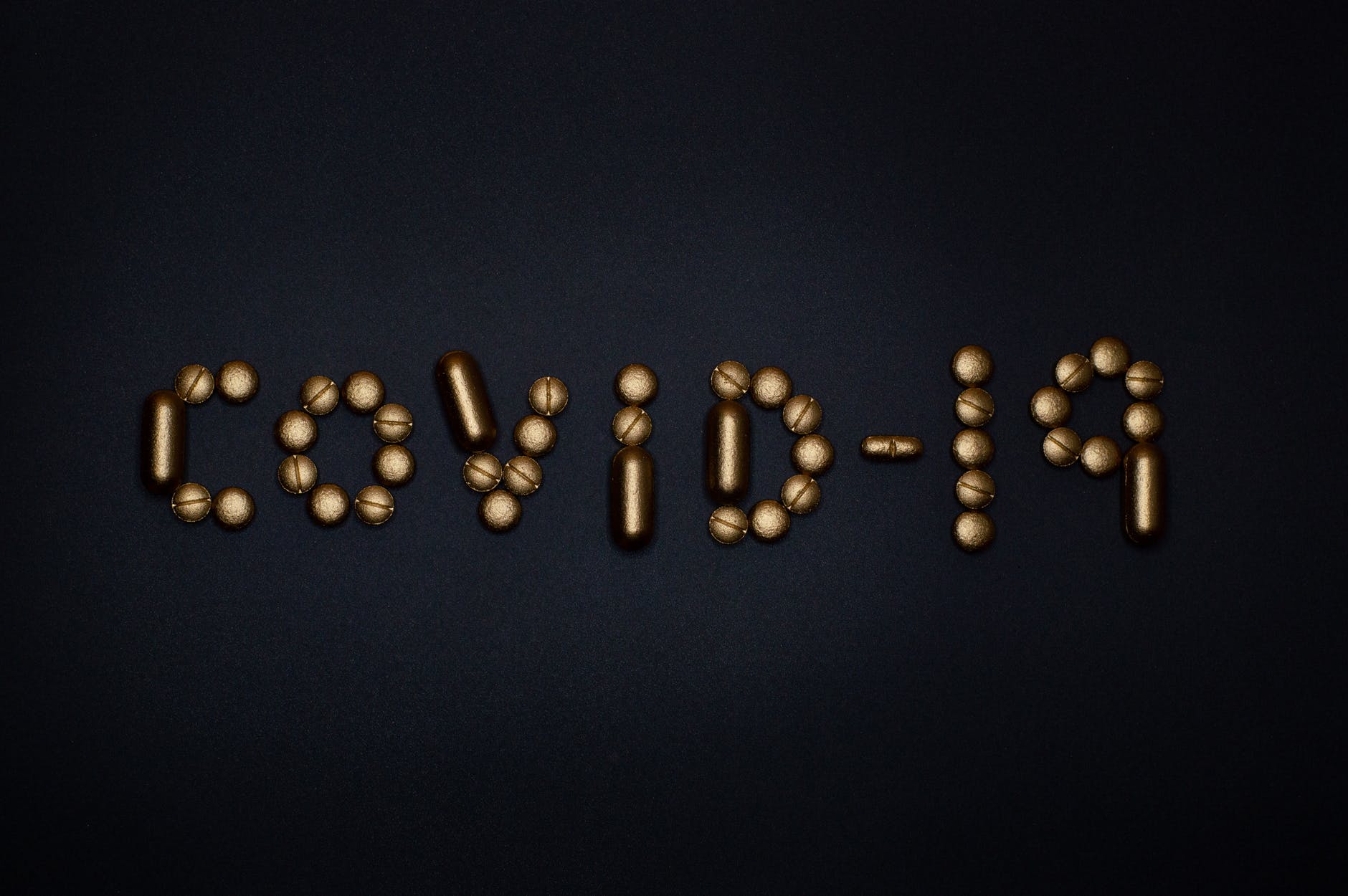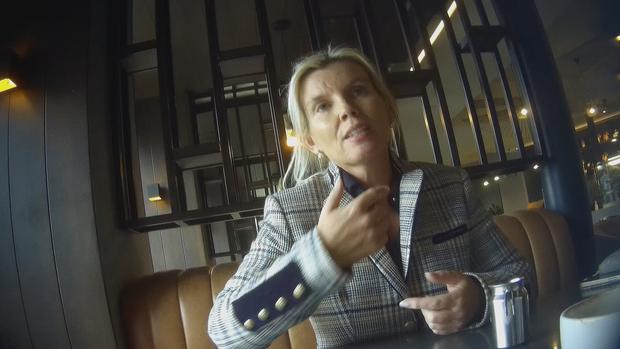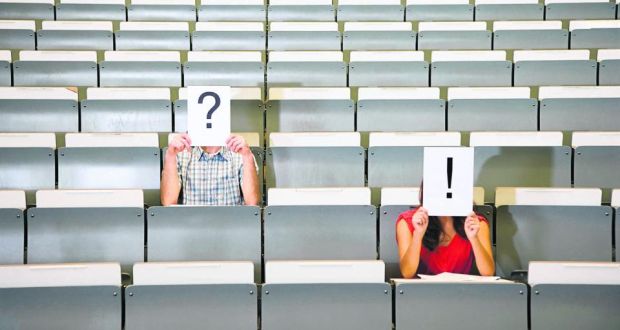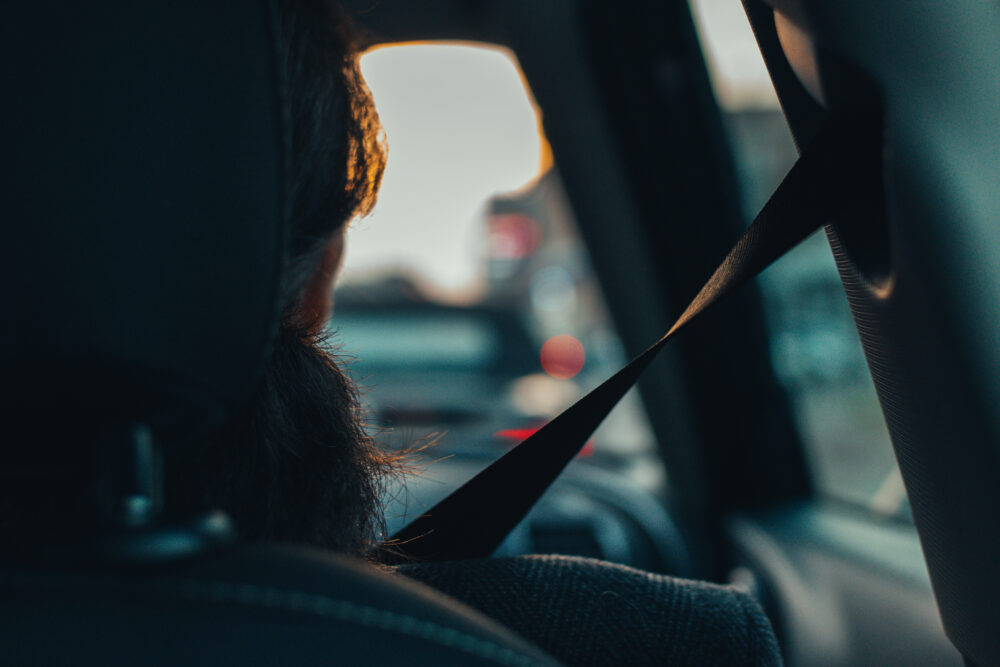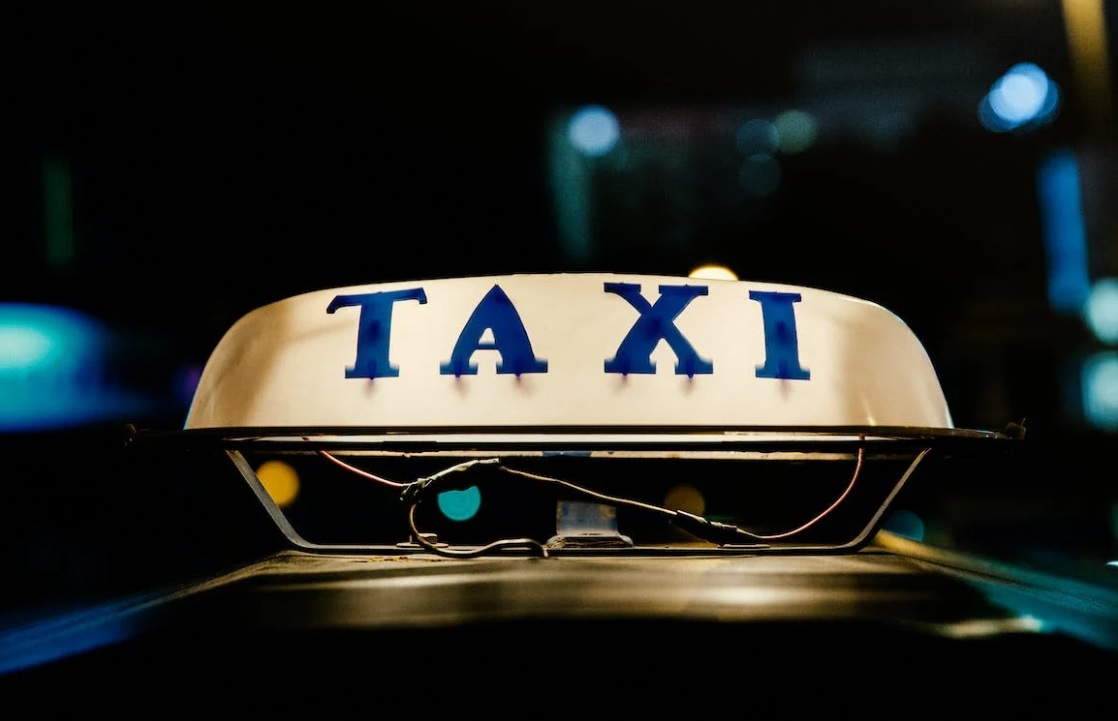Latest figures from the National Public Health Emergency Team show the rise in Covid cases may be slowing locally.
Of the 866 cases confirmed yesterday, six were in Carlow and five were in Kilkenny.
It’s a drop from the previous day, Wednesday, which saw 13 positive tests in Carlow yesterday, with five in Kilkenny.
A positive trend also seems to be emerging nationally, as fewer than a thousand new cases have been reported in six out of the last seven days.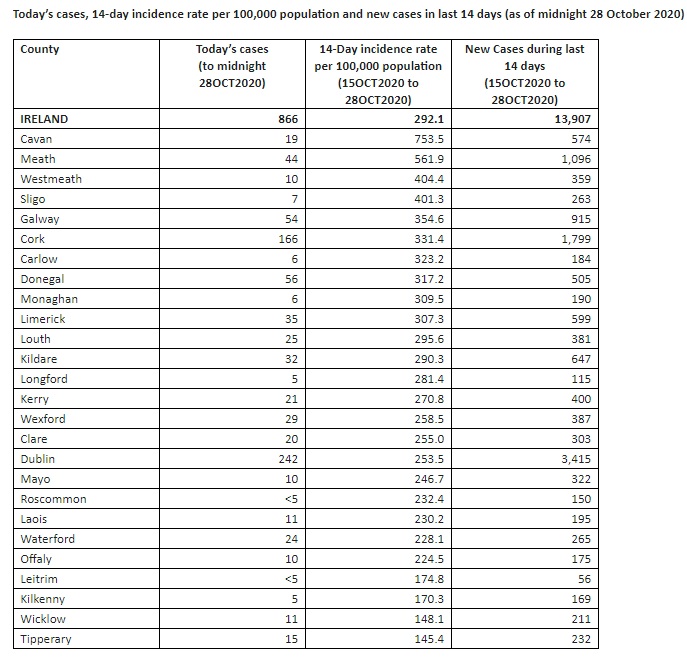
The country’s estimated 14-day incidence rate of Covid-19 has fallen for a third day in a row.
It now stands at 292 after a further 866 new cases of the virus were confirmed last night – while six more deaths were reported to the Department of Health.
Expert in virology, Professor Gerry Killeen says the total is still very concerning.
Ballyjamesduff remains the local electoral area with the highest Covid-19 14-day incidence rate in the country at 1,484.
For the third week in a row, the LEA in Cavan has had the highest incidence rate in the country after registering 383 new cases of the virus in the two weeks until Monday.
It’s followed by Ratoath in Meath, which has a rate of 1,365, while one other area has a rate of more than a 1,000 – which is Galway City Central.
A number of Local Electoral Areas have 14-day incidence rates of more than 700, including Conamara South in Galway, Gorey in Wexford, Sligo-Strandhill, Maynooth in Kildare, Ashbourne in Meath, as well as the Cavan-Belturbet constituency.
The area with the highest rate in Cork is the South-Central part of the city with a rate of 625.
While in Dublin, Blanchardstown-Mulhuddart has a rate of more than 400.
This week is the first since the data has been compiled that no local electoral area has a rate of less than five cases over a fortnight per 100,000 people.
The areas with the lowest rates include Nenagh in Tipperary, Corca Dhuibhne in Kerry and Lismore in Waterford.
Contact Tracing …
The HSE says the percentage of close contacts of confirmed cases turning up for their second Covid test, has gone from 20 to 70%.
The number of people taking their first test had been at about 50% but it’s now up to 92%.
Ireland is also ranked second in Europe for the volume of contact testing and tracing it’s carrying out per capita, despite the system being overwhelmed one weekend.
HSE CEO Paul Reid is encouraging people to come forward for their tests.
Hand Sanitisers …
The Education Minister says there’s no evidence that over 50 hand sanitisers, soaps, sprays and wipes being withdrawn from school suppliers are unsafe.
The Department of Education is taking them out of circulation because of a “technical licencing issue”.
Last night 52 of products were taken off a list of 172, which were approved for use in schools — after a review found they weren’t on a register of safe products. (More on that here).
Minister Norma Foley says if the paperwork can be sorted out – they could be put back into schools eventually.
While Labour’s spokesperson on education Aodhán Ó Riordáin says school communities don’t have much faith in how this is being handled.
Pubs …
Some publicans are selling their licences for as much as €50,000.
The Irish Examiner reports they are selling them to supermarkets which need a licence to be able to sell alcohol in stores.
They are also in demand with those wanting to open an off-licence with pubs closed under Level 5 and people told to stay at home as much as possible.
Elsewhere …
Yet another part of England is moving into the highest coronavirus restriction level.
West Yorkshire will switch to tier-3 on Monday.
British council leaders say they already have evidence that the NHS is starting to struggle to deliver essential care.
The UK’s Eat-Out-To-Help-Out scheme is believed to have increased Covid-19 infections by as much as 17 percent.
Research from the University of Warwick says it caused a significant rise in coronavirus cases after it began, and a drop once it ended.
The UK government initiative which gave people 50 percent off meals during the summer is believed to have cost around 550 million euro.
Cyprus and Lithuania have been taken off the UK’s safe travel list.
It means from 4am on Sunday anyone coming from either of those two places to the UK must self-isolate for 14 days.
No countries have been added to the list this week.
Meanwhile, the president of the European Commission now says it was a mistake to relax travel restrictions during the summer.
Ursula Von Der Leyen was speaking following talks with the European Council of foreign ministers today.
Her home country, Germany, recorded over 23-thousand cases in the latest official data, a fresh record.
Ms Von Der Leyen says in hindsight, limits on free movement were lifted too soon, but that’s just part of the picture.
Face Coverings …
The consumer watchdog Which? is urging manufacturers and retailers to up their game on face coverings.
Lab tests have revealed alarming differences in the effectiveness of widely-available reusable masks.
Three out of the 15 are said to have performed so badly they’ve been deemed “Don’t Buy”.

